Born in New York City in 1959, Mary Murphy studied at Yale before going to Oxford to read for a second undergraduate degree in PPE. She returned to the US to attend Harvard Law School and then moved into legal practice, specialising in land-use law. Based in San Francisco, Murphy is a partner in the city’s office of Gibson, Dunn & Crutcher. Alongside her legal work, she was appointed by both Presidents Clinton and Bush, serving two terms of the Presidio Trust Board, and has held positions across a wide range of social and charitable organisations, including the Bay Area Council Housing Committee, Advance SF and the San Francisco Chamber of Commerce. Mary is a strong supporter of the Rhodes Trust and has served on a selection committees for many years. She is currently the District Secretary for District 15 (Arizona, Hawaii, Nevada and California-North). This narrative is excerpted and edited from an interview with the Rhodes Trust on 30 August 2024.
Mary Murphy
New York & St Catherine’s 1981

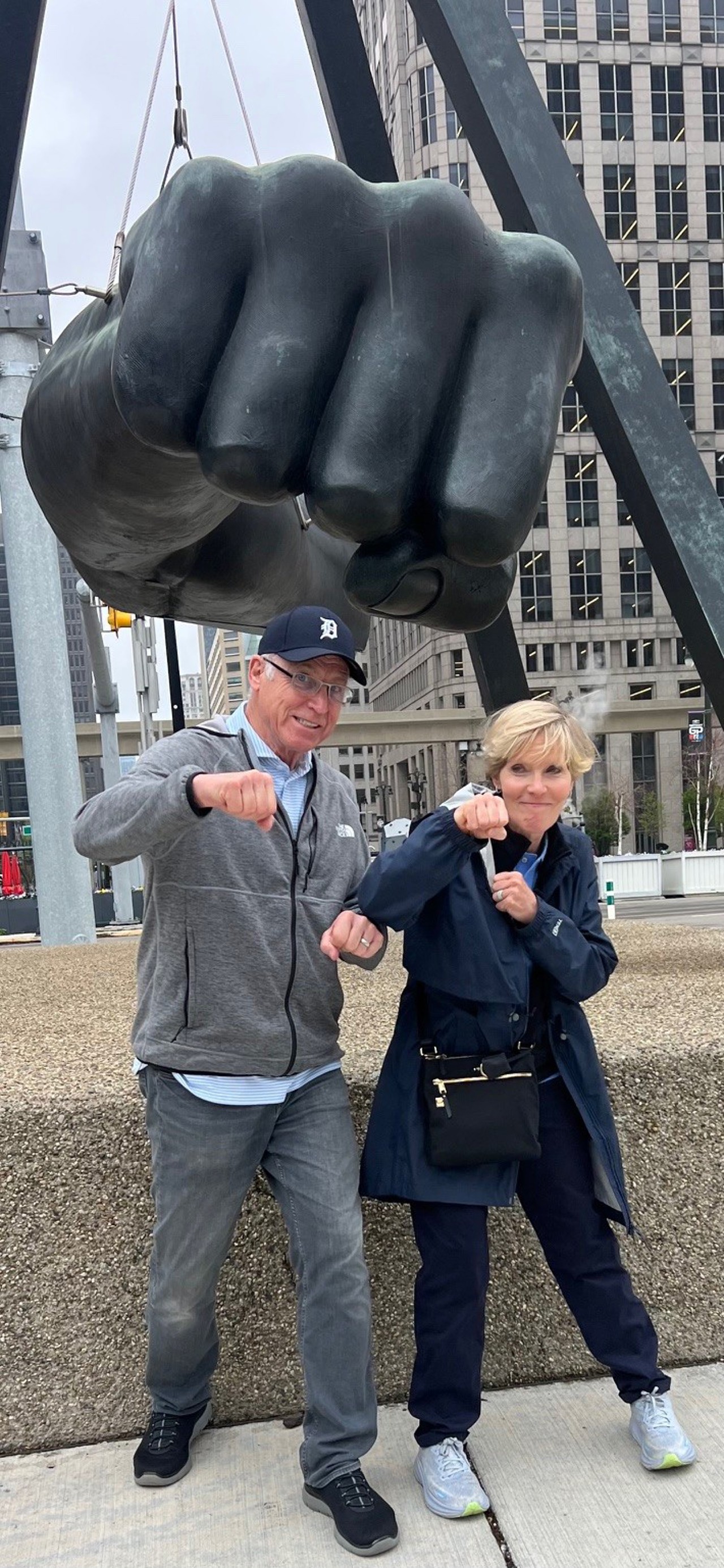

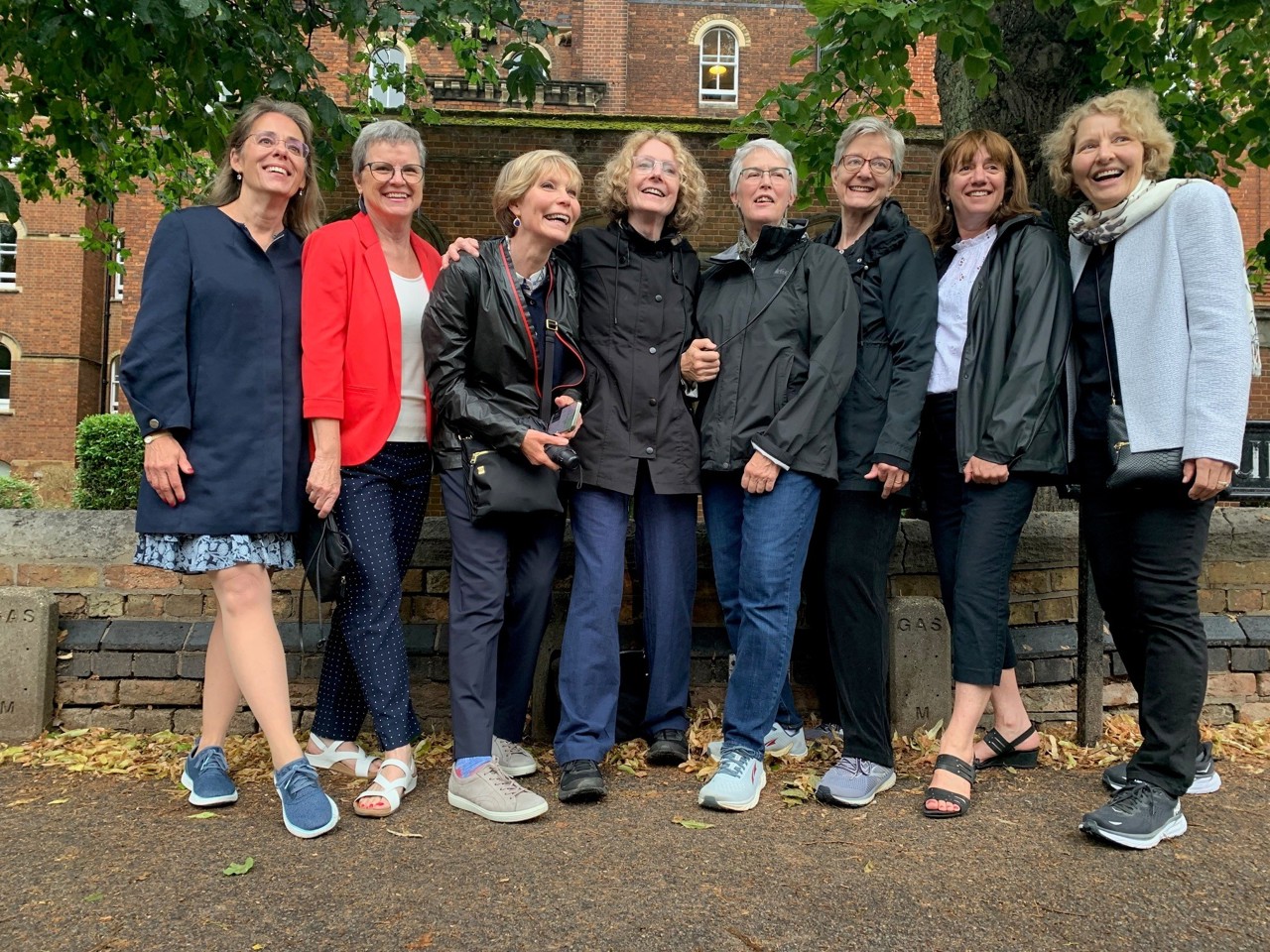
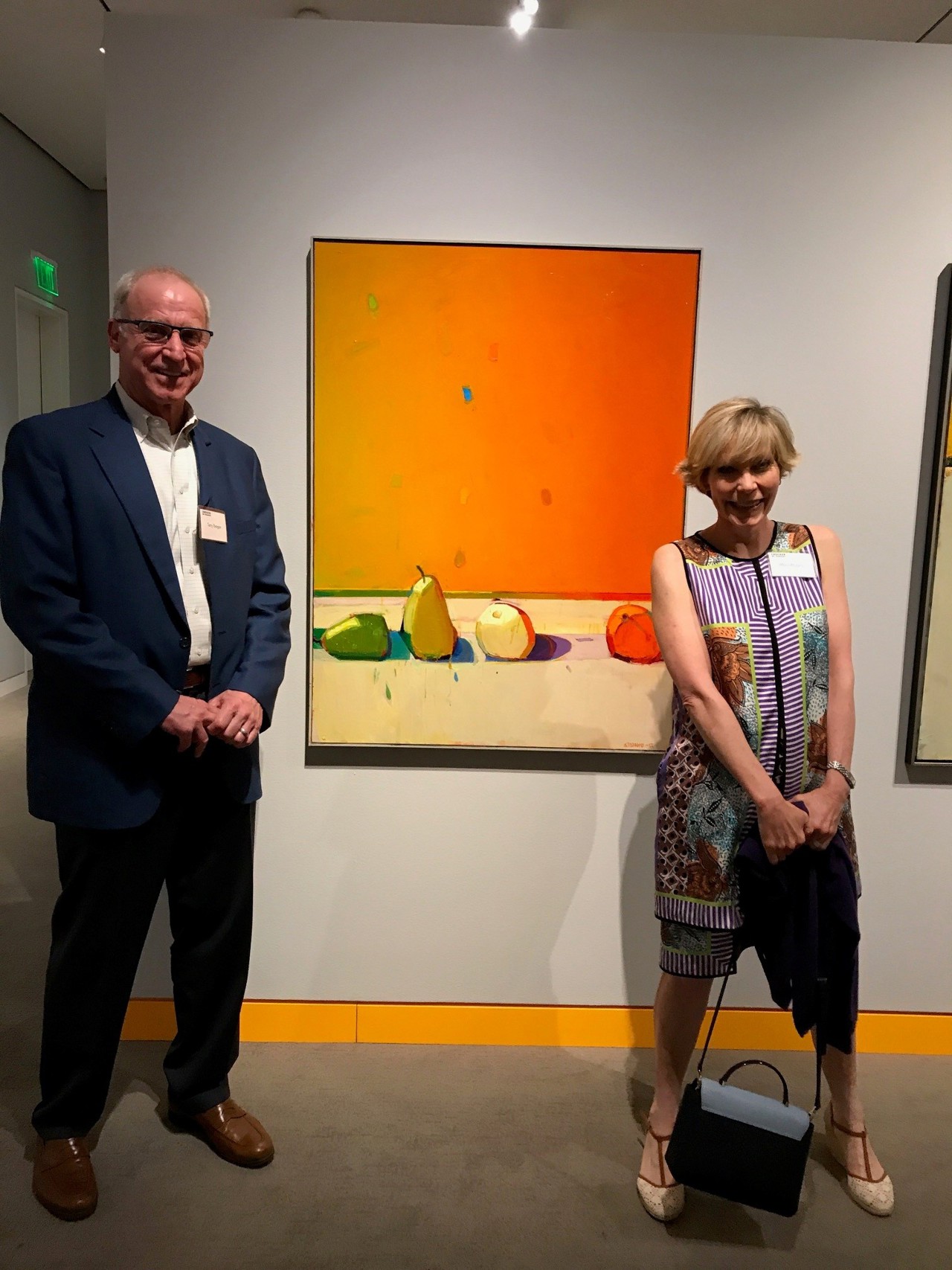

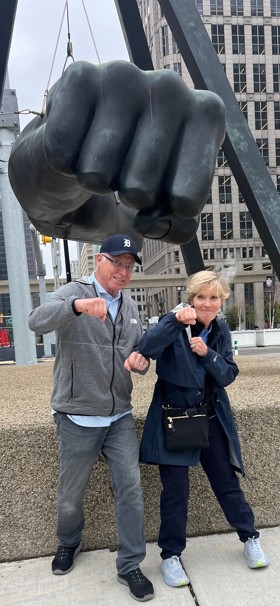
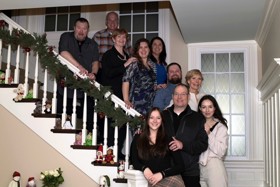
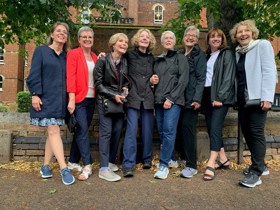
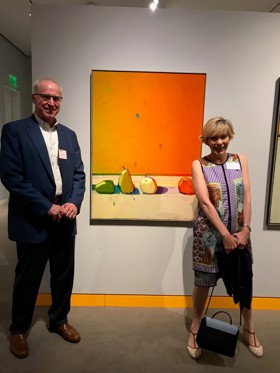
‘It was a community where we all knew each other’
Both my parents came from families of Irish immigrants, and I grew up in Queens in New York City. I’m the middle of five children, and I think that birth order is very good because you must learn to manage up and manage down! My parents were wonderful people, and very integrated into the community. My father was a firefighter, and my mother was a nurse, and alongside their work and keeping up with all of our swim meets and sporting events, they were also involved with our church and many local clubs and activities themselves. I always think their schedule must have been like the assault on Normandy! One of the things that had a deeply felt impact on our lives was that my immediately younger brother, Matthew, was born deaf. He was and is amazing and, as kids, it was a family undertaking to assist where we could in his navigation of a hearing world. The way we were raised helped develop my own sense of having been profoundly fortunate.
I went to Catholic school and church was a big part of our lives, but neighbourhood in Queens was diverse ethnically and religiously, and it was a community where we all knew each other. Today, Queens is even more diverse than it was then, with even greater racial and religious diversity. I think my primary school would have characterised me as a mediocre student (and only if they were feeling uncommonly charitable in the moment) but once I got into high school, I became a more conscientious student. I had always been a voracious reader, so literature was my avenue to a wider world, but because I went to a Jesuit high school, I also got a wonderful grounding in moral philosophy and religion. That really formed my interest in how people approach ideas about the world. One of the most influential people in my life was Father Vincent Butler, S.J., who taught us history but was also the coach of the school’s speech and debate team, of which I was a member. He was everything you want in a teacher: kind, perceptive, and hilariously funny.
On applying for the Rhodes Scholarship
I had very little idea about colleges, and I chose Yale because I had a friend there and I went to visit. I just really had a desire to go to a school where I could get a lot out of it academically. I was a financial aid student there and I had a job and had to take out loans, but my parents had always been clear that we should apply to the best college we could, and they would make it work. I also credit my mother with bringing us up in a totally non-sexist way. She made it clear that we could be anything we wanted to be.
I was so lucky at Yale to get amazing professors and a wonderful roommate. She was also from New York City and although her family was wealthier than mine, her values and her family felt just like mine in so many ways. We were like peas in a pod. I found Yale very pressured in terms of its scholarly demands, but I don’t have any regrets about working so hard. I learned how to be very disciplined, and loved my course, American Studies where I focused on early American intellectual history.
There was a little bit of support from Yale when I applied for a Rhodes Scholarship, but it was light touch. It was a guy I was going out with at the time, who had applied for the Rhodes but had not won, who really encouraged me to apply. I didn’t have any preparation for the interviews at all, but I think that can be for the best. It means you are your authentic self. The rumour was that the interview process was intense, and the stakes did seem high, but it was a very positive experience for me, and not at all hostile.
‘A real world-widening experience’
My Rhodes class was the last class of Canadian and US Scholars to sail over to England together. It was an incredible experience, especially for me, having grown up as a city person, to be in the middle of the Atlantic Ocean, on the deck of the QEII at night and looking up at utter darkness. Leaving my home city and sailing past the Statue of Liberty was a profound moment for me, particularly as the grandchild of immigrants who left Ireland on ships never to return home again in their lifetime.
We arrived in Oxford at an interesting moment. Margaret Thatcher had recently been elected the prime minister, and a lot of people were unhappy with her monetarist policies. It seemed like a time of great political upheaval. At the time, I was also surprised to witness overt racial discrimination in England, but upon reflection, it seems somewhat similar to nativist movements today. But I loved my college, St Catherine’s, because it gave me the chance to be with a lot of British kids. Alongside that, being part of the Rhodes community meant I got to know people from all parts of the world, and that was a real world-widening experience.
One very hard thing that happened was that my father died at the end of my first term in Oxford. Communication wasn’t easy back then, and my mom had to write me a letter to tell me my father was gravely ill. When I got it, I made a long-distance phone call and realised how bad things were, so I went back to the US for those few weeks. All through that time, my Rhodes Scholar friends were so supportive, and my tutor was too, but it was tough.
My course, PPE (philosophy, politics and economics) was brilliant. So many other Scholars were also taking it, and that meant we were reading the same texts at the same time, so we could have vigorous debates about the core questions we were encountering, including around democracy and freedom of speech. I am so grateful for having had that intellectual rigour and the chance for insight into those principles that underpin our democracies. I also had the chance to row and play basketball and just play a lot of sports, and to travel across Europe, which was new to me and so much fun.
‘You have to find a way to get people to come together’
I would say that the Rhodes ethos was very much that of my high school as well, especially around the deeply ingrained notion that to whom much is given, much is expected. So, I left Oxford feeling both honoured and obligated to fight the world’s fight. I had thought I might go into elected politics, but as I went through law school, I decided that I would use my skills as lawyer to try and do something pro bono that was meaningful for my community. I ended up gravitating towards business law, and I lot of my work has been about large multi-phase, multi-year development projects for communities. So, for example, I worked on the Warriors arena in San Francisco, and on the Ferry Building, and I love that these are not just places for people to work but they are also community focal points. In my commercial work and in my pro bono projects, I’ve been particularly focused on things that serve children, especially around offering active recreation in public spaces.
When you reflect on your life, it’s interesting how sometimes your attention can focus on things that are part of your professional life or your external, public life. But for me, the huge undertaking of my adult life has been being a parent. It is the most rewarding thing I feel like I’ve done. Becoming a parent is like crossing a threshold: it puts me in mind of Seamus Heaney’s poem, ‘St Kevin and the Blackbird’ in which he speaks of being ‘linked/Into the network of eternal life.’ I don’t think you have to be a parent to feel those things, but the connections with our family, which can be our chosen or adopted family, are what give our life meaning. That depth of love and care can be in tension with our professional lives, and we must be honest about how hard that can be sometimes.
‘It’s a recipe for unhappiness to compare yourself to others’
I would say that it’s a recipe for unhappiness to compare yourself to others. You need to decide for yourself whether you’re really living up to the gifts that have been given to you. When it comes to those gifts, and to those powerful connections that you have with friends and family, you must tend to your own garden. That is the foundation of everything else we do in the world. It’s not always easy to hang on to your values, but it is so important. Take pleasure in the simple things and draw strength from friends and family.
